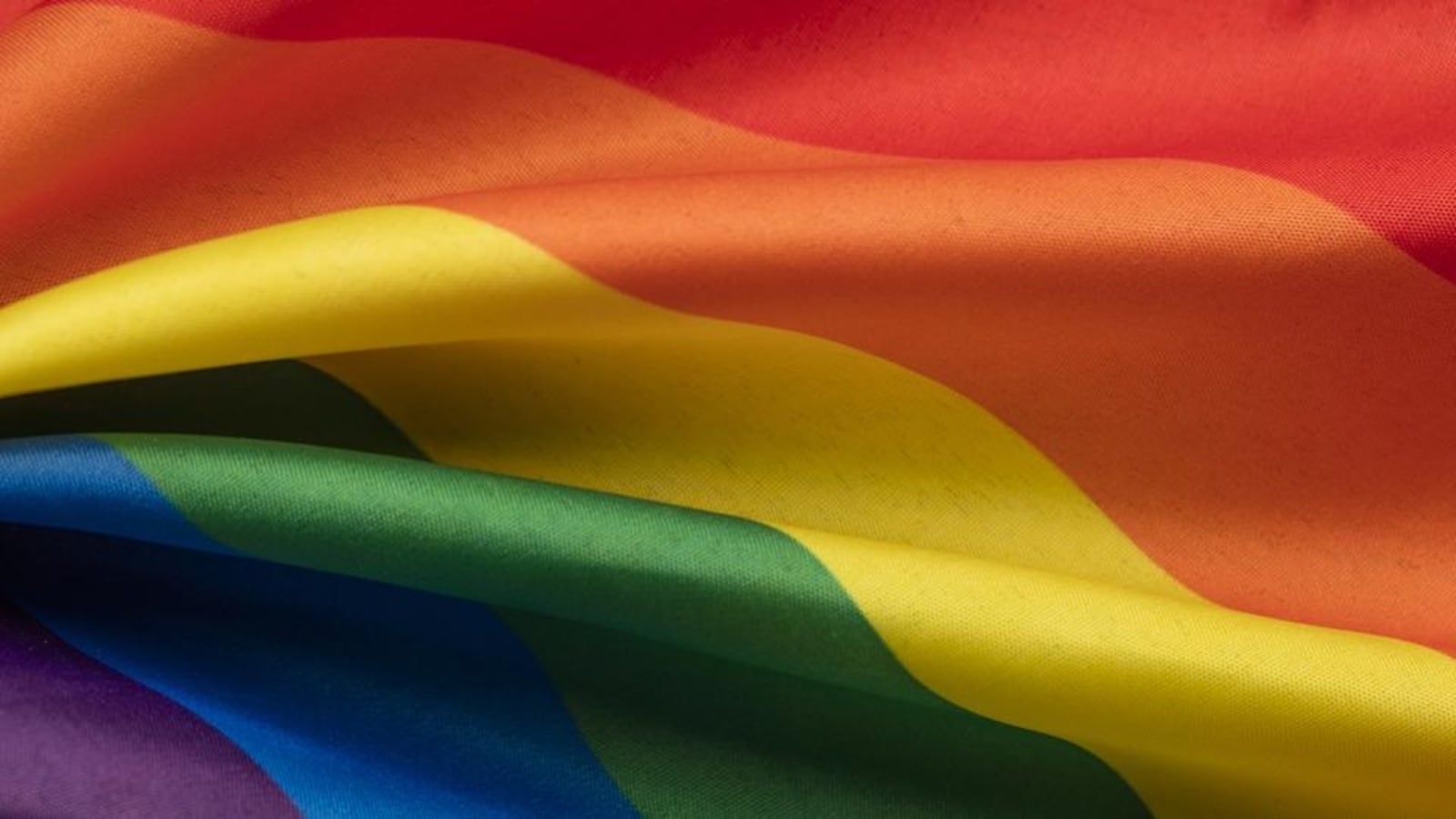[ad_1]
On Tuesday, the five-judge Structure bench led by Chief Justice of India DY Chandrachud known as the argument that the best to marry isn’t a constitutional proper, “far fetched”. The identical day, throughout the Palk Strait, Sri Lanka speaker Mahinda Yapa Abeywardena introduced within the Sri Lankan parliament that the nation’s Supreme Court docket in Colombo had held that decriminalising homosexuality was not “inconsistent with the Structure”.
Consequently, the Penal Code (Modification) Invoice, introduced earlier than the Parliament by Sri Lanka Podujana Peramuna (SLPP) MP Premanath C. Dolawatte on April 4 may be handed with a easy majority — and won’t require both a two-thirds majority or a individuals’s referendum, as sought by the petitioners who challenged this invoice in courtroom on April 17.
The Sri Lanka Supreme Court docket heard a batch of petitions to resolve whether or not it was constitutional to vary part 365 and part 365A of the island nation’s penal code that will result in decriminalising homosexuality. It additional held that such adjustments, when caused by the legislature, would affirm the constitutional rights of sections of Sri Lankan society.
Part 365 (carnal intercourse towards the order of nature) in Sri Lanka is the equal of India’s part 377 (unnatural offences below the Indian Penal Code). Part 365 (A) in Sri Lanka pertains to offences below “Gross Indecency”.
The motivation for the petitioners searching for decriminalisation stemmed from the need in addition to concern that if they don’t begin their authorized battle now, the lesbian, homosexual, bisexual, transgender, queer/ questioning, intersex, asexual (LGBTQIA+) group in Sri Lanka can by no means transfer ahead. “We now have been compelled to defend ourselves,” says one of many petitioners on this case, Pasan Jayasinghe, a 34-year-old PhD scholar and queer activist based mostly in Colombo. “And so many international locations like India are exhibiting us that this can be a gateway to a bigger social reform. That the state can’t merely name us a prison and take us to jail.”
For petitioners like Pasan and 45-year-old transgender man Thenu Ranketh who’s the director of Colombo-based NGO Venasa Transgender Community, this case is without delay a fruits of their efforts and a place to begin in direction of a bigger discourse on the LGBGTQIA+ group.
And it’s not simply their friends however psychological well being professionals, legal professionals, former undersecretary normal of the United Nations, Radhika Coomaraswamy and former Vice Chancellor of the College of Colombo, Savithri Gunasekara who’re a part of greater than a dozen intervening petitioners within the case.
“I assumed in my lifetime it was inconceivable to discuss LGBT rights in public due to Sri Lanka’s tradition,” stated Thenu. “However, look the place we are actually. We now have allies who’ve filed instances. They’re supporting us in public. We’re elevating visibility. This case has helped us to make so many connections.” Thenu spoke to this correspondent in Sinhalese with the assistance of an English translator.
Opposition to homosexuality
The arguments introduced earlier than the Sri Lankan courtroom towards Dolawatte’s progressive invoice adopted the same line as these introduced earlier than the Indian apex courtroom by the Union of India: that recognition of same-sex need, and rights and entitlements, threatened the very material of heterosexual society.
Satirically, Dolawatte’s personal political occasion, the Sri Lanka’s Folks’s Entrance often called Sri Lanka Podujana Peramuna (SLPP members Jehan Hameed, Shenali Waduge and Athula De Silva) opposed the invoice within the courtroom on the grounds that it’s going to expose youngsters to little one abuse, enhance instances of HIV/ AIDS, it’s towards Buddhism and that it’s inconsistent with (Articles 120 and 121) of the structure of the Democratic Socialist Republic of Sri Lanka.
“Publicity to lesbian, homosexual, bisexual and transgender [LGBT] programmes in faculties might affect the free decision-making energy of youngsters and provides rise to transgender youngsters,” the opposing petitioners held.
“The courtroom [can only] decide whether or not the Invoice is according to the Structure or not,” stated petitioner Radika Gunaratne, a human rights lawyer and coach on gender fairness and social inclusivity. In Sri Lanka solely the Parliament can resolve on decriminalisation, she added.
Nonetheless, the authorized battle has opened up the area for queer Sri Lankans to voice their protest towards their criminalisation — a battle that the Indian queer group has fought within the courts for the reason that Nineteen Nineties, when a Delhi-based non governmental organisation AIDS Bhedbhav Virodhi Andolan (ABVA) filed the primary petition within the Delhi excessive courtroom difficult Part 377. Although the petition by no means went wherever, it was one other petition filed in 2001 by one other organisation, Naz Basis (India) Belief, that ultimately led to the studying down of the prison part within the Indian Penal Code to not apply to consenting similar intercourse wanting adults. The excessive courtroom verdict was challenged and overturned by the Supreme Court docket in 2013. And it was solely in 2018, when a clutch of petitioners together with Navtej Johar, moved the Supreme Court docket searching for decriminalisation. On September 6, 2018, a structure bench of the highest courtroom learn down the act.
In Sri Lanka, the intervening petitioners have argued within the high courtroom that Sections 365 and 365A of the Penal Code are “misused by State authorities, and significantly the Sri Lanka Police to mistreat LGBTQI+” group. “This mistreatment extends to the infliction of bodily and sexual violence, detention with out trigger, and subjection to compelled anal and vaginal examinations,” the petition states. The phrase “any act of gross indecency” in part 365A has been used extensively towards the gay group, the petitions say including that “even these seen merely holding fingers have been arrested.”
“There are a number of instances of police torture towards people of the group,” stated Gunarate. “And due to the criminalisation, they undergo double victimisation.” In instances of intimate companion violence (throughout the queer group) which Gunaratne has dealt with, she stated she can’t get a redressal from the system as a result of the police will prosecute the perpetrator and the victims of home violence below these sections.
Method forward
With the Sri Lanka high courtroom paving the best way for the invoice to be heard within the Parliament, the event is being met with cheer excessive courtroom’s recognition that the LGBT communities have been denied a constitutional proper.
This battle for equal rights in Sri Lanka has a particular significance given its place on the planet as a debt-ridden island with poor requirements of human rights throughout its bloody civil battle. The complaints of barbaric violations by the Sri Lankan military throughout its 30-years of civil battle earlier than defeating the banned Liberation Tigers of Tamil Eelam (LTTE) in 2009, continues to be a matter of concern among the many worldwide group.
And lately Sri Lanka has reeled below a number of crises. The Easter Sunday terror assaults in April 2019 which killed greater than 250 civilians was adopted by three adjustments of governments in Sri Lanka. The island’s debt worsened in the course of the Covid pandemic in 2020. For a lot of final yr, there was a scarcity of meals, medicines, gasoline, electrical energy, and jobs. Struggling their worst financial disaster, Sri Lankas went on mass protests from April to August final yr forcing the then President Gotabaya Rajapaksa to flee the island-nation for seven weeks.
Like every other emergency state of affairs and disaster, it affected the minorities probably the most together with the LGBTQIA+ group. “A number of the trans individuals are getting ready to hunger,” stated Thenu. “Virtually nobody has returned to normalcy or stability.” So, the battle because of lack of entry to primary rights equivalent to well being, training and jobs can be part of an rising discourse as a result of case. “Which is why I feel that that is the state’s accountability and it shouldn’t simply be a personal member’s Invoice,” says Gunaratne. “However, this is a vital begin.”
The petitioners cited legislations internationally together with Navtej Johar versus the Union of India (2018).
The judgements and arguments first within the Delhi excessive courtroom and later in Supreme Court docket on 377 has served as an inspiration to the case in Sri Lanka, says queer feminist and advocate, Ponni Arasu who as a part of the Various Legislation Agency, (among the many coalition of ‘Voices In opposition to 377’, one of many intervenors within the Delhi excessive courtroom hearings), was on the helm in drafting the arguments on the time.
Arasu pointed to similarities in how Sri Lanka is countering the argument that decriminalisation is towards Sinhalese-Buddhist tradition with how they opposed the opinion that part 377 helped uphold Indian tradition. “This is the reason our arguments are publicly accessible so it may be utilized by anybody,” stated Arasu. “And a significant affect outdoors the courtroom, is that the case in India has opened up assets in South Asia (versus Western publishers) which may be accessed by the Queer group in Sri Lanka.”
A number of international locations together with the UK, USA, South Africa, have decriminalised consensual gay relationships. The Lankan petitioners have additionally taken the instance of one other troubled neighbour, Pakistan who in 2018 enacted the Transgender Individuals (Safety of Rights) Act which is taken into account some of the progressive legal guidelines on the planet.
So however what occurs within the Parliament, the group and their allies consider it is a flashpoint. “It’s a motion the place we’ve got to meet up with the altering occasions. There isn’t any getting back from this,” stated Sarala Emmanuel, a human rights activist. “Due to what’s occurring in India and the entry to social media, Tamil popular culture, the youthful era is popping out to battle for an equal life.”
Arasu stated that this case is a chance for the queer group in Sri Lanka to have the robust conversations on class and ethnicity and transfer from an institution-based strategy. “Put up-war, areas engaged on LGBT rights grew to become extra institutionalised however activists in Sri Lanka have stated that this has not resulted in additional entry to helplines and shelters when queer of us have confronted violence and are out of properties,” stated Arasu. ‘In India, via the method of the authorized battle towards 377 we grew to become extra assured people and we ultimately got here collectively as a group. I hope that occurs to the Sri Lankan queer group too.”
[ad_2]
Source link


